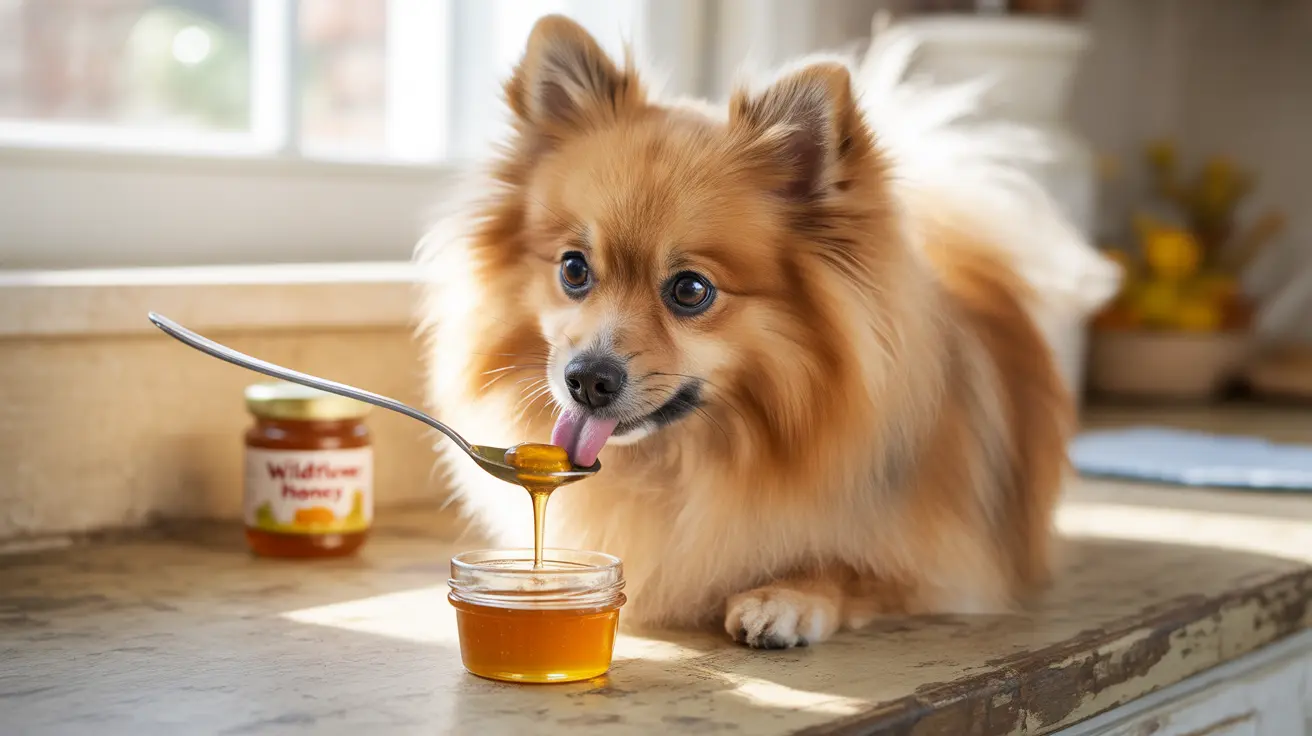As pet owners increasingly seek natural remedies for their furry friends, honey has emerged as a topic of interest. While dogs can indeed have honey, it's essential to understand both the benefits and potential risks of feeding this sweet substance to your canine companion. This comprehensive guide will help you make informed decisions about incorporating honey into your dog's diet.
Honey offers several potential health benefits for dogs, from immune system support to wound healing properties. However, like any treat, it requires careful consideration and proper portioning to ensure your pet's safety and well-being.
Understanding the Safety of Honey for Dogs
Honey is generally non-toxic to dogs, but not all types are created equal. Pure, natural honey is typically safe, while products containing artificial sweeteners—especially xylitol—can be extremely dangerous. When choosing honey for your dog, opt for pure, unpasteurized varieties free from additives.
Special consideration should be given to puppies and immunocompromised dogs, as raw honey contains botulism spores that their developing or weakened immune systems might not be able to handle.
Health Benefits of Honey for Dogs
When given appropriately, honey can provide several health advantages for dogs:
- Rich in vitamins B, C, and E
- Contains essential minerals including calcium, iron, and zinc
- Offers natural antioxidant properties
- Provides anti-inflammatory benefits
- May help soothe minor throat irritations
The natural antibacterial properties of honey, particularly in varieties like Manuka honey, can make it beneficial for wound care when applied topically under veterinary guidance.
Proper Dosage and Administration
The key to safely giving honey to dogs lies in proper portioning. Here's a general guideline based on dog size:
- Small dogs (under 20 lbs): 1/8 to 1/4 teaspoon
- Medium dogs (20-50 lbs): 1/2 teaspoon
- Large dogs (50-100 lbs): 1 teaspoon
- Extra-large dogs (over 100 lbs): Up to 1 tablespoon
Remember that honey should be considered a treat, not a dietary staple. Follow the 10% rule: treats, including honey, should not exceed 10% of your dog's daily caloric intake.
Potential Risks and Considerations
While honey can be beneficial, there are several risks to consider:
- High sugar content can contribute to weight gain
- Possible allergic reactions to pollen or other components
- Risk of dental issues with frequent consumption
- Potential complications for diabetic dogs
- Botulism risk from raw honey, especially for puppies
Frequently Asked Questions
Can dogs have honey safely, and what are the main risks to watch for?
Yes, dogs can safely consume honey in moderation. The main risks include weight gain from sugar content, potential allergic reactions, and botulism risk from raw honey, particularly in puppies or immunocompromised dogs.
What is the recommended amount of honey to give my dog, and how often is it safe?
The amount varies by size, from 1/8 teaspoon for small dogs to 1 tablespoon for extra-large dogs. Honey should be given occasionally as a treat, not daily, and should never exceed 10% of daily caloric intake.
Are there specific types of honey that are better or safer for dogs, such as Manuka or raw honey?
Manuka honey is known for its superior antibacterial properties, while raw honey contains more beneficial nutrients than processed varieties. However, raw honey carries a higher risk of containing botulism spores.
Can puppies or dogs with health issues (like diabetes or weak immune systems) eat honey?
Puppies and dogs with compromised immune systems should avoid raw honey due to botulism risk. Dogs with diabetes or obesity should not be given honey due to its high sugar content. Always consult your veterinarian first.
How can honey benefit my dog's health, and what are some common uses (like wound care or cough relief)?
Honey can help soothe minor throat irritations, provide immune system support through antioxidants, and aid in wound healing when applied topically. It also contains beneficial vitamins and minerals that support overall health.
Conclusion
While honey can be a beneficial addition to your dog's treat rotation, it's crucial to use it thoughtfully and in moderation. Always consult with your veterinarian before introducing honey into your dog's diet, especially if your pet has existing health conditions or is still a puppy. When used appropriately, honey can be a sweet and potentially beneficial treat for your canine companion.






